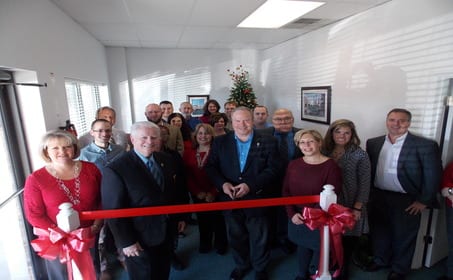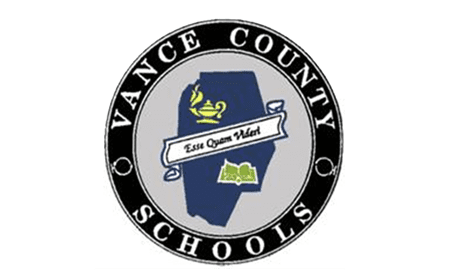VGCC to offer Agricultural Entrepreneurship program in Vance & Granville counties
/by WIZS StaffWith partners at the local and state levels, the Vance-Granville Community College Small Business Center will soon offer the “NC REAL Agricultural Entrepreneurship” program in Henderson and in Oxford.
The seven-week course is designed specifically to help local farmers and budding entrepreneurs succeed in developing profitable, environmentally-sound small farms or agricultural businesses.
The class will be offered at the Vance County Regional Farmers Market (210 Southpark Drive, Henderson) on Saturdays, Jan. 23 through March 5, from 8 until 11 a.m.
At the Granville County Expo & Convention Center (4185 U.S. Highway 15, Oxford), the class will be offered on Mondays, Feb. 8 through March 21, from 6 until 9 p.m.
Space is limited to 20 students at each location.
NC REAL Agricultural Entrepreneurship is designed for small business owners who grow crops or trees, raise livestock, or make sauces, pickles or jams with items from a garden. The goal is for participants to strengthen their business savvy in order to gain the highest profit margin possible.
Participants will consider challenges such as pricing their products; the logistics of getting their products to the market; selecting the best market; and how to generate income between growing seasons. Other topics include business development and management, finance and regulatory requirements, quality and safety standards. Participants will also be introduced to resources and contacts that can help them operate more efficiently and effectively.
The instructor at both locations will be Carrie Harvey of Harvey Hills Farms in Oxford, who is also a client of the VGCC Small Business Center.
“This is a hands-on, interactive program, beneficial to farmers or anyone who grows a marketable agricultural product, who wishes to start a business or has been in business less than three years,” said Tanya Weary, director of the Small Business Center. Each participant will receive free, one-on-one counseling as a client of the Small Business Center, which will help them take their ideas to the next level of business planning.
Tuition for the course is $70, and the cost of the textbook is $25. Scholarships to offset the cost of tuition are available to qualified participants, thanks to support from the North Carolina Tobacco Trust Fund Commission.
For more information and to register, contact Kyle Burwell, coordinator of Human Resources Development, at (252) 738-3276 or hrd-wk@vgcc.edu, or Tanya Weary at (252) 738-3240 or smallbusiness@vgcc.edu.
Propel GPS holds Ribbon Cutting
/by WIZS StaffPropel GPS, LLC held a ribbon cutting on December 8th to celebrate the expansion of their offices at 946X Crossroads Shopping Center on Highway 39. A Chamber member for over 2 years, the company opened in Henderson over 3 years ago.
Company owner and CEO Rick Burtner welcomed attendees to the event which was part of a Christmas Open House featuring catered refreshments and introductions of team members from various parts of the US. The company offers a one-stop solution for asset management and sensor monitoring in a robust, secure, reliable platform that combines the accuracy of Global Positioning System (GPS) wireless communications using global satellite and cellular technology. It’s user-friendly application is easy to install, operate and manage and allows for the ease of tracking vehicles and/or critical assets directly from a desktop or mobile phone.
If your company has a fleet to manage, drivers to monitor or temperature sensitive perishable goods to haul, Propel GPS may be just the solution for you. In addition, the company takes pride in their involvement with area universities and Vance-Granville Community College through the use of interns, practicum classes and student hires as well partnerships with veterans and veteran groups.
The company has offices in Reston, VA and in Henderson, NC and can be reached for business inquiries at 901-359-4731 or on the web at www.PropelGPS.com.
Blakebrough and Crosson Earn Doctoral Degrees
/by John C. Rose inistrators while they worked on getting their doctoral degrees. Both admitted that meeting all of their responsibilities, while doing the in depth work required for the degree was challenging.
inistrators while they worked on getting their doctoral degrees. Both admitted that meeting all of their responsibilities, while doing the in depth work required for the degree was challenging. Blakebrough began work on her degree about eight years ago. During that time, her husband became ill and battled cancer for two years. He lost his battle and Blakebrough said it took another two years for her to gain the motivation again to pursue the degree. She did her dissertation on the teaching and learning that went on at Henderson Institute from 1952-1970, interviewing 10 graduates of the school.
Blakebrough began work on her degree about eight years ago. During that time, her husband became ill and battled cancer for two years. He lost his battle and Blakebrough said it took another two years for her to gain the motivation again to pursue the degree. She did her dissertation on the teaching and learning that went on at Henderson Institute from 1952-1970, interviewing 10 graduates of the school.NC Farm School
/by John C. RoseNC Farm School: An educational value for new and transitioning farmers
Paul McKenzie, Agricultural Extension Agent for Vance and Warren Counties tells WIZS News: “We are pleased to announce the launch of the Eastern Piedmont NC Farm School for new and transitioning farmers in Franklin, Nash, Wake, and Warren Counties as well as surrounding areas! The program was developed to provide a resource to the numerous people visiting the local Cooperative Extension offices seeking help to grow crops, raise livestock, sell to local markets, handle employees, learn regulations, follow restrictions and generate revenues.
“The NC Farm School is not like any other program offered in the state! Nowhere else can you learn from specialists and current farmers about budgeting skills, marketing expertise, and record keeping. Participants even get to visit local farms in supporting counties to see how these farms operate. It is the best combination to teach business and production while helping to ensure the success of students who attend.”
Kelly Connor, a graduate of NC Farm School in the Southern Piedmont, told McKenzie, “It would have taken my brothers and I at least 20 years to get the information and education we have received in the short time attending NC Farm School. This program is worth more than double the price.”
If you are interested in attending the Eastern Piedmont NC Farm School, or want to hear more testimonies from farmers who attended the NC Farm Schools, visit the NC Farm School website at https://ncfarmschool.ces.ncsu.edu, or your local Cooperative Extension Office for more information on how to apply. An interest meeting will be held on January 5, 2016 at the Franklin County Cooperative Extension Office (103 S. Bickett Blvd, Louisburg NC) at 6:30PM.
(Information for this article received from:)
Paul McKenzie
Agricultural Extension Agent, Vance/Warren Counties
NC Cooperative Extension
305 Young St., Henderson, NC 27536
158 Rafters Ln., Warrenton, NC 27589
https://www.ces.ncsu.edu
252.438.8188 (Vance) 252.257.3640 (Warren)
252.213.6095 (cell) @pgmckenzie
This institution is an equal opportunity provider and employer.
First Presbyterian Music Outreach
/by John C. Rose
The grant program allows for a music therapist, Cheryl Benze, to visit with special needs students in three classrooms each Wednesday and lead them in music activities. The activities provide lots of opportunities for the students to be actively involved as Benze plays songs on her guitar they can sing along to and dance to, as well as providing instruments for the children to use in songs.
Benze visits with students in the classrooms of Jennifer Southerland, Cynthia Moore and Alka Singh. In each classroom, she sits on the floor in a circle with the students. Benze begins the sessions by playing her guitar and singing to each student by name, “Hello, It’s Nice to See You,” as shown in the accompanying photo. The students happily clap their hands and sing along. Benze also plays the guitar as she and the students stand and dance to more music.
She leads a second activity where the students each play instruments including bells, shakers, tambourines, small drums and wooden sticks. Benze directs them in each song as to when to play their instruments.
“The kids absolutely love this,” Moore noted as she watched her students totally enthralled in every song. “This just really makes their day!”
In another activity, each student has a bell with a different pitch and Benze directs them with sheet music, that is color coordinated with the color of their bells, on the appropriate time for them to sound the bells.
Benze says she has now visited each of the classrooms for the last three weeks, with plans to continue throughout the school year.
“Our church has developed this music outreach program and grant funding covers all of the costs,” Benze said. “We really enjoy doing this and see it as very worthwhile for the children. They all love music.”
She added that there are plans to expand the music therapy sessions with students in other local elementary schools.
(Information provided in a news release from Vance County Schools)
Arrest for Recent Robberies
/by John C. RoseOn Tuesday, December 15, 2015, members of the Henderson Police Department Criminal Investigation Division, North Carolina Alcohol Law Enforcement Agency, and the Vance County Sheriff’s Department arrested an individual for recent robberies in the Henderson area.
Dejon Williams, 24, of 720 Highland Avenue, Henderson has been charged with one count of robbery with a dangerous weapon in reference to a robbery reported at Citi Trends, 399 Raleigh Road on December 5, 2015. Williams was also charged with one count of robbery with a dangerous weapon in regards to an incident at Cruizer’s, 800 Dabney Drive, on December 14th.
Williams was placed in the Vance County Jail after failing to post a 200,000.00 secured bond in these matters. The investigation in these matters is still ongoing and additional charges could be forth coming.
Press Release Authority: Chief Marcus Barrow





